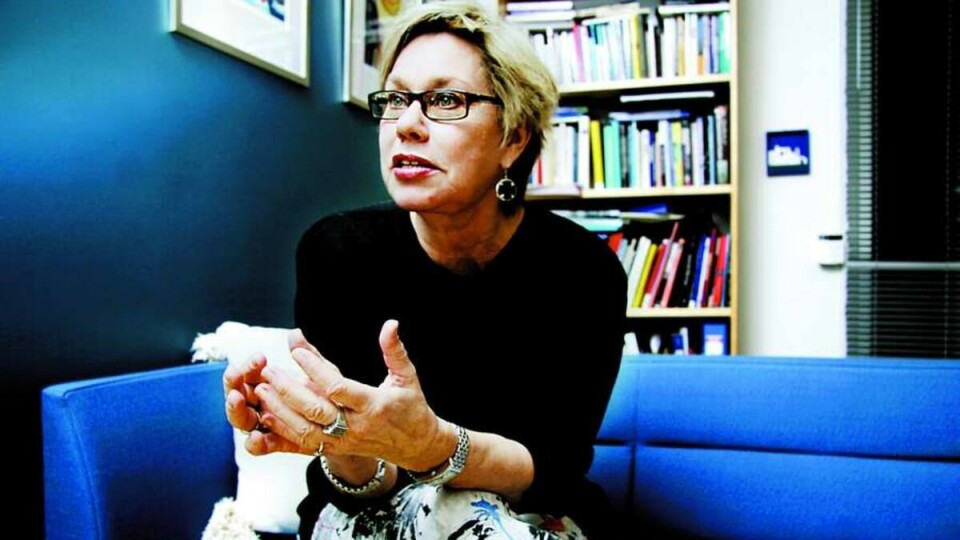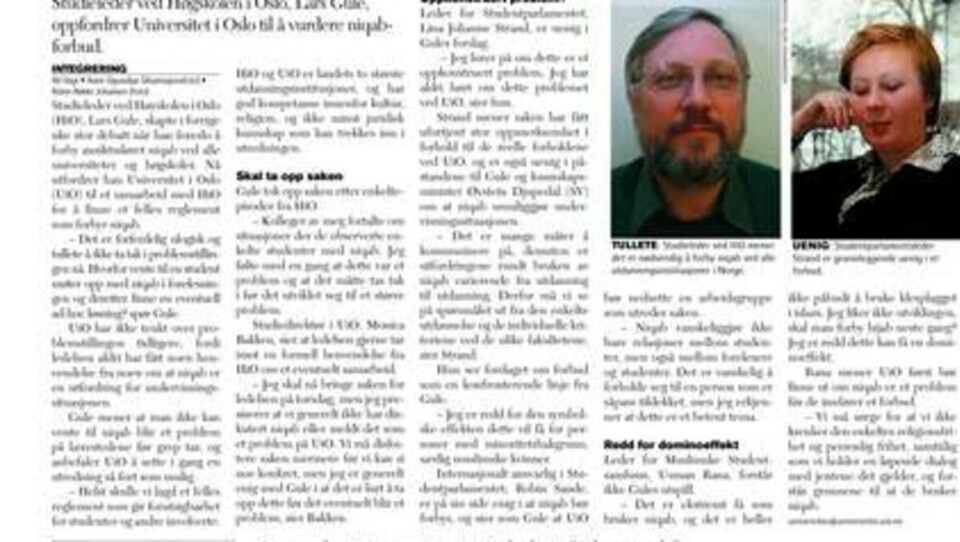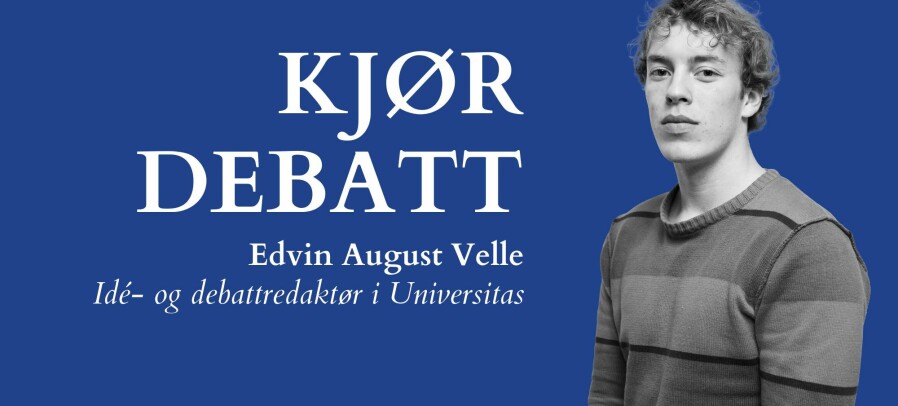
– Every problem cannot be solved with a ban
Fanny Duckert, Head of Department at the Institute of Psychology, criticises Gule’s suggestion to ban niqabs. The University Board, on the other hand, does not want to make any decision on whether or not UiO will ban the garment for the time being.

– I don’t understand why Gule is pushing this issue. There are so many other challenges that need to be tackled, and we ought to put our resources into making minority students’ everyday life easier rather than harder. This can be achieved by providing a better and more varied reading material, a better buddy system, and not least by finding ways to make the most of the multicultural resources these minority students bring with them, says Fanny Duckert, professor and Head of Department at the institute of Psychology.
In last week’s Universitas, Lars Gule challenged the University of Oslo (UiO) to ban the niqab sooner rather than later.
Duckert emphasises that not every problem can be solved with a ban.
– Besides, I believe in dialogue. We are, after all, talking about young adults who are capable of making their own judgement.
– Does that mean that you disagree that communication problems can arise in situations where someone is wearing niqab?
– No, it is obvious that communication becomes more difficult when someone is completely covered, especially to psychologists like myself, who use the body as a communicative tool, says Duckert, and admits that niqabs may become a problem in certain working situations.
– But we must tell the individual student that the niqab she wears may limit her working performance.
«The silent poison»
Duckert is very involved in how international students and Norwegian students with minority backgrounds are met at the University.
– Even though open discrimination is less common in Norway, discrimination comes in many disguises. I have a student of African descent who calls this «the silent poison». It is difficult for people of different descent to be recognised as individuals, Duckert claims.
– Do you feel that Gule’s proposition falls into line with this kind of prejudice?
– I generally feel that Gule is trying to prove himself as a man of action. Everyone seems to try to out-bid one another in such cases, but this is the wrong way of doing it.
– What would you advice the University Board to do next?
– I hope that they decide not to go for Gule’s suggestion. I also hope that this whole discussion will lead to more social commitment and more focus on the situation to minority students.
– Not an issue
Rector at UiO, Geir Ellingsrud acknowledge that the University Board discussed niqabs on the board meeting last Thursday.
– We will pay attention to how the debate progresses, but this is not an issue for UiO at this stage. I can understand that this is a difficult matter with good arguments on both sides, but we cannot address every single case that might become a problem in the future.
– Do you not see how the niqab can become a problem?
– There are many aspects to consider here, not least from the female perspective, but it isn’t something that the University Board needs to address at this point, Ellingsrud says.
Lars Gule responds that it is short-sighted of the University not to discuss the matter any further at this stage.
– But I am taking it into consideration.
Gule feels that it is the media and not himself who has stirred the debate.
– I considered this to be an important problem to address, and I cannot see any difficulties when it comes to discussing niqabs while at the same time focusing on the challenges that occupy minority students, Gule says.
































